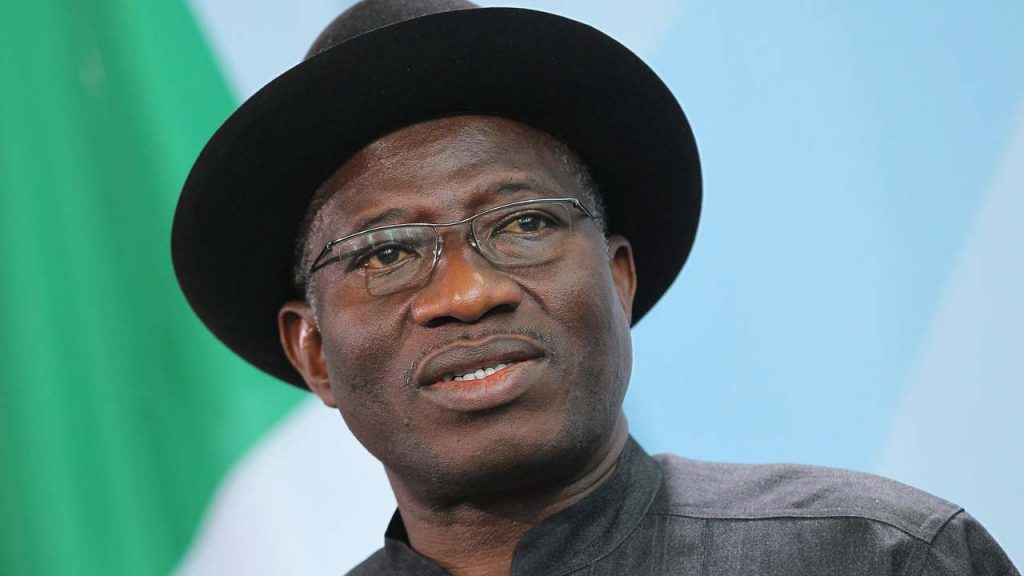The real reason President Goodluck Jonathan declared a state of emergency in the three northern states of Adamawa, Yobe and Borno without removing the governors and the local government chairmen has been made public.
It will be recalled that in the wake of escalating attacks by Boko Haram insurgents, former President Jonathan on May 13, 2013, slammed a state of emergency in some selected local government areas of the three states but left the governors and local government officials intact, triggering criticisms from his party members.
While the Peoples Democratic Party, PDP, saw the declaration of the state of emergency as a window by the Presidency to remove the three sitting APC governors, President Jonathan rebuffed the party, insisting that it would amount to illegality to remove the affected governors from office as a result of the emergency declaration.
The former Attorney General of the Federation and Minister of Justice, Mohammed Adoke, revealed this in his new book, ”Burden of Service: Reminiscences of Nigeria’s former Attorney General.”
According to Adoke, Jonathan’s refusal to deploy the emergency rule declaration to oust the three opposition governors from office was widely criticized by top government functionaries, including ministers and PDP supporters.
The ex-AGF said that he advised Jonathan against sacking of the three governors since, according to him, there is no law in Nigeria that supports such action by the President.
Adoke said: “President Jonathan came under criticism from commentators who felt he should have removed the local government chairmen as well as the governors in the affected states. The opportunity for Jonathan’s foes to describe him as a weak leader emerged yet again.
“Historically, state of emergency was employed more as a political weapon to settle scores with opposing forces, not necessarily to address issues of actual or imminent threat to security. Nigerians were more familiar with that nefarious employment of the provision. The fact that governors in Nigeria cannot be held responsible for any breakdown of law and order is not lost on these critics.
“Governors are the chief security officers of their states only in name; they do not have the requisite constitutional power of control over the security agencies. Removing them during emergency, to my mind, was simply illogical.”
The former minister said that those who disagreed with Jonathan expected him to emulate the wrong example set by former President Obasanjo who used emergency declaration to sack several governors who had political differences with him.
Obasanjo tried to pressurize Jonathan to move against Gov Gbenga Daniel
Adoke said: While the 1961 State of Emergency Act allowed for the removal of premiers, the 1979 Constitution and subsequently the 1999 Constitution, spelt out how to declare a state of emergency. The removal of a governor is definitely not included in the provisions.
“Obasanjo, still thinking state of emergency, could rightly be used politically and illegally the way he had applied it during his tenure, tried to mount some pressure on President Jonathan in his early days in office in 2010 to apply it to the crisis in Ogun State, his home state.
“In that case, the governor of Ogun State, Otunba Gbenga Daniel, had fallen out of favour with Obasanjo over who would control the state executive of the PDP, ahead of the 2011 elections. The House of Assembly had also been divided, so Otunba Daniel could not function effectively, especially regarding getting the approval necessary for the N100 billion bond he wanted to get from the capital market.
Obasanjo tried to exert a lot of pressure on Jonathan, urging him to declare a state of emergency. He wanted Jonathan to suspend Daniel and appoint an administrator to return things to normalcy.
“Since we had successfully warded off the use of state of emergency as a political tool in Ogun’s case, it was not too difficult applying the same principles to other suggestions from the marauding hawks. There was still a big battle ahead, nevertheless.
“As the Boko Haram insurgency continued unabated in the North-East, the hawks told President Jonathan that the state of emergency, declared by him in May 2013 and renewed in November of the same year was not effective because the governors of Adamawa, Borno and Yobe states were not removed. Ironically, the three governors were all of the APC, the leading opposition party.
”The potential political gain was glaring. The hawks piled pressure on the President to extend the state of emergency by another six months and remove the three governors. This would take us into 2014, when the politicking for the 2015 general election would be in top gear.
”Two ministers even drafted a declaration of emergency speech and took it to the President. They named three retired Generals to be appointed as administrators of the three states.
“President Jonathan then decided to ask me to make a presentation to the Federal Executive Council on my position, apparently because he did not want to do anything illegal.
”When I got to Council, I marshaled my argument that removing a governor was not part of the constitutional provisions in declaring a state of emergency and I told them that declaring an emergency was constitutionally, a shared responsibility between the President and the National Assembly, with the legislature having a superior dominion.
“A heated debate ensued. Two ministers, one of them a lawyer that never practiced and the other, a full time politician, stood up to me and started an unnecessary argument, insisting the President can do and undo. The President had to call the house to order as emotions ran high.
“In the end, President Jonathan decided that he would not violate the Constitution and did not extend the emergency. He did not also remove the three governors,” Adoke stated.

